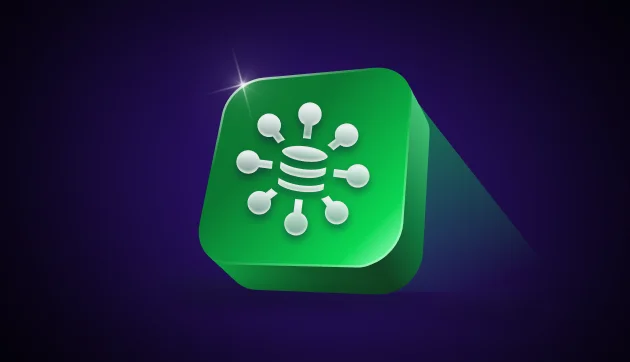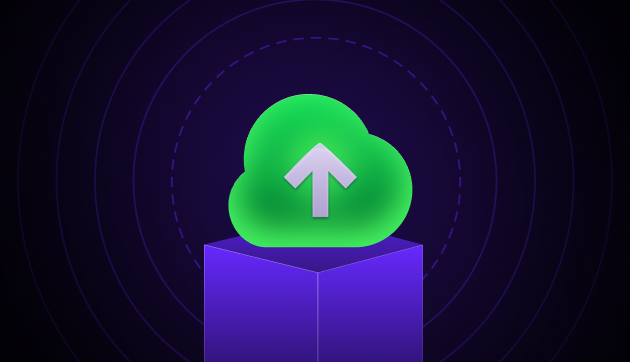
Business Analytics vs Data Analytics: Which is More Important in 2025?
Mar 06, 2025 4 Min Read 4286 Views
(Last Updated)
In this data-driven world where everything is decided by the data of an entity, analytics play an important role in predicting the outcome. Two types of analytics are widely popular: Business Analytics and Data Analytics.
Business analytics deals with solving business problems by focusing on the statistics and the data formulated by the business over the years while data analytics mainly focuses on raw data that can help in finding the trends and patterns.
But what is the difference between those two? At first glance, both may sound similar; analyzing data, but that’s not all there is to it. In this article, you are going to learn in-depth about the differences between business analytics and data analytics and how both can help in improving a company’s success.
Let’s get started.
Table of contents
- Key Differences Between Business Analytics and Data Analytics
- Why Business Analytics and Data Analytics are Important for a Company's Success?
- Business Analytics
- Data Analytics
- Conclusion
- FAQs
- What are the key benefits of Business Analytics?
- What are the key benefits of Data Analytics?
- Which is better for small businesses, Business Analytics or Data Analytics?
- Can a company use both Business Analytics and Data Analytics?
- Does implementing Data Analytics require more technical expertise?
Key Differences Between Business Analytics and Data Analytics

The role of a business analyst is key in deciding a business’s future whereas a data analyst’s role is to predict future events based on the data provided.
| S.No | Aspect | Business Analytics | Data Analytics |
| 1. | Definition | Business analytics mainly focuses on using statistical analysis and data to solve business problems and make decisions that help business grow further. | Business analytics mainly focuses on using statistical analysis and data to solve business problems and make decisions that help businesses grow further. |
| 2. | Objective | The primary objective is to make data-driven business decisions and improve business processes. | The objective is to find actionable insights from data sets for a wide range of applications that help them in predicting outcomes. |
| 3. | Scope | Business analytics is primarily centered on business-related issues. | On the other hand, data analytics is broader in scope and applicable to various fields beyond business. |
| 4. | Skills Required | Some major skills needed for business analytics are business acumen, statistical analysis, data visualization, and problem-solving. | Some major skills include statistical analysis, machine learning, data processing, coding (e.g., Python, SQL). |
| 5. | Tools Commonly Used | Famous tools that are most commonly used are Excel and Business Intelligence software like Tableau or Power BI. | Some of the tools used in data analytics are advanced statistical software, Python, R, SQL, Hadoop. |
| 6. | Data Focus | Mainly focuses on structured data in the context of business. | It mainly deals with both structured and unstructured data from various sources |
| 7. | Key Activities | Key activities include identifying business trends, performance analysis, and market analysis. | This includes data cleaning, data exploration, and predictive modeling. |
| 8. | End Goal | The end goal is to inform and improve business strategies and operations by analyzing business trends and patterns. | The end goal is to extract insights and knowledge from data regardless of the domain. |
| 9. | Output Interpretation | The results are typically interpreted in the context of business impact and strategy. | The findings are more diverse and can be applied to various domains beyond business. |
| 10. | Example Applications | Common examples and applications include sales forecasting, customer segmentation, and financial analysis. | Common examples are predictive modeling, machine learning projects, and data mining. |
Know More: Top 15 Business Analyst Interview Questions With Answers
Before we move to the next part, you should have a deeper knowledge of data engineering concepts. You can consider enrolling yourself in GUVI’s Big Data and Cloud Analytics Course, which lets you gain practical experience by developing real-world projects and covers technologies including data cleaning, data visualization, Infrastructure as code, database, shell script, orchestration, cloud services, and many more.
Additionally, if you would like to explore Data Engineering and Big Data through a Self-paced course, try GUVI’s Data Engineering and Big Data self-paced course.
Why Business Analytics and Data Analytics are Important for a Company’s Success?

A lot of product-based companies are seeking business analysts and data analysts for their company’s success and the answer to why they do so lies in this section where you will learn how and why business analytics and data analytics are crucial for a company’s success.
Business Analytics
Business analytics help companies in the following ways:
1. Better Decision-Making:
Imagine a captain navigating a ship. Just as a captain uses a compass, business analytics provides company leaders with data-driven insights to guide their decisions. It helps in understanding what worked in the past and what didn’t, enabling smarter decisions for the future.
2. Understanding Customers:
It’s all about understanding what customers want. By analyzing past customer behavior, companies can predict what customers might buy next, tailor their marketing strategies, and improve customer satisfaction.
3. Streamlining Operations:
Business analytics is a tool to make a machine run more smoothly. It can identify bottlenecks in operations, helping to streamline processes, reduce costs, and increase efficiency.
4. Competitive Edge:
By understanding market trends and what competitors are doing, a company can stay one step ahead in the game beating all the competitors.
5. Financial Health:
A company’s financial health is very important as that decides the overall workflow. Business Analytics can pinpoint financial areas that need attention, help manage budgets, and forecast future financial scenarios.
Also Explore: 6 Reasons Business Analytics Makes Digital Marketing Powerful
Data Analytics
The following are the ways in which data analytics helps:
1. Wide Application:
Data analytics is like an all-in-one kitchen vessel; it’s versatile. It can be applied to various aspects of a business – from marketing to product development, offering insights across all departments, not only business-oriented.
2. Handling Big Data:
In an era where companies collect vast amounts of data, data analytics helps make sense of this data, extracting valuable insights by using big data visualization tools, data analyzers, and so on.
3. Predictive Insights:
It’s like a weather forecast for business. Data analytics can predict future trends based on historical data, helping companies prepare for what’s coming next.
4. Risk Management:
Imagine having a safety net while you are climbing a tall building or a mountain. That is what Data analytics is for big companies as it helps identify potential risks and threats to the business, allowing companies to create strategies to mitigate these risks.
5. Innovation and Growth:
It’s the fuel for a company’s creative engine. By analyzing market trends and customer feedback, data analytics can drive innovation in products and services, leading to business growth.
Also Read: Data Science vs Data Analytics | Best Career Choice in 2025
Kickstart your career by enrolling in GUVI’s Big Data and Cloud Analytics Course where you will master technologies like data cleaning, data visualization, Infrastructure as code, database, shell script, orchestration, and cloud services, and build interesting real-life cloud computing projects.
Alternatively, if you want to explore Data Engineering and Big Data through a Self-paced course, try GUVI’s Data Engineering and Big Data Self-Paced course.
Conclusion
In Conclusion, both Business Analytics and Data Analytics are like navigational tools for a company in the vast sea of the market. They provide critical insights that help in making informed decisions, understanding customers, streamlining operations, managing risks, and driving growth.
In a world driven by data, these two analytical methods help in deciding a company’s future and help in avoiding potential harms that might or might not occur in the future.
Learn About: Top Statistical Programming Languages of 2025
FAQs
It helps in better decision-making, understanding customer behavior, improving operational efficiency, gaining a competitive advantage, and forecasting business trends.
Benefits include gaining insights from large and diverse data sets, predicting future trends, enhancing data-driven decision-making, and identifying new business opportunities.
Small businesses might prefer Business Analytics because it directly addresses operational efficiency and customer understanding, which are crucial for small-scale operations.
Yes, many companies benefit from using both, employing Business Analytics for specific business decisions and Data Analytics for broader data exploration and insight gathering.
Yes, it often requires more technical skills like knowledge of programming languages (e.g., Python, R), machine learning techniques, and advanced statistical methods.



























Did you enjoy this article?